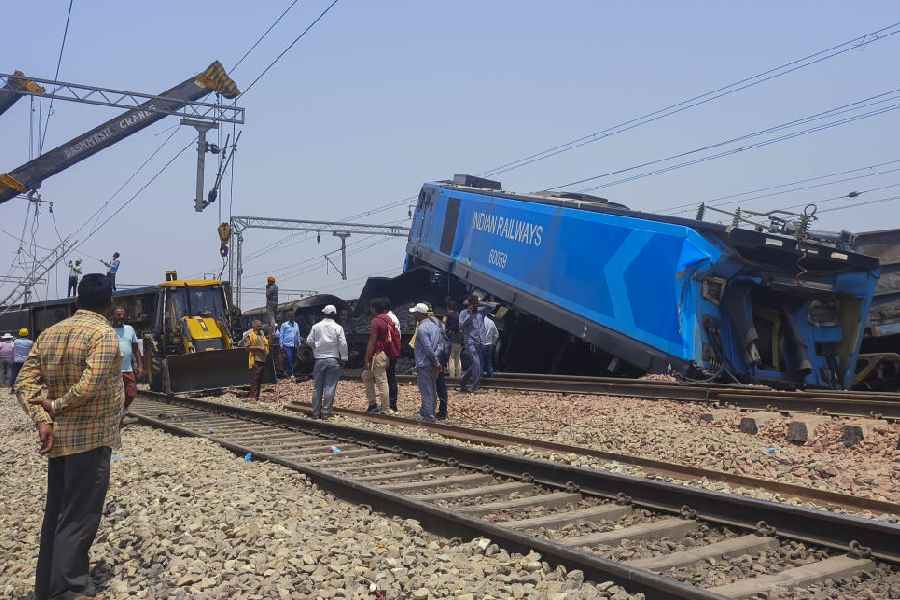Four days after a goods train collision in Punjab, the investigation revealed that the loco pilot and his assistant fell asleep at the wheel and failed to apply the brake at the red signal, a railway official said.
The incident occurred on June 2 around 3:15 am between the Sirhind junction and Sadhoogarh railway station in Punjab when the engine of UP GVGN derailed and fell sideways on the main passenger line, according to a probe report, a copy of which is with PTI.
Coincidentally, the Jammu Tawi Summer Special, which was crossing from the adjacent line around this time, hit the freight train’s engine lying closer to the track and its engine derailed by all wheels, the report said.
The probe report suggests that it was a narrow escape for hundreds of passengers as the Jammu Tawi was running at a slower speed of 46 kilometres per hour (kmph) because of an approaching single yellow signal.
In Railways, a single yellow is a caution signal where loco pilots are supposed to reduce the train speed in anticipation that the next signal might be a red one.
The loco pilot and the assistant loco pilot of UP GVGN were stuck inside the toppled engine and railway employees present on the site had to break the windshield to rescue them. Both were admitted to the hospital with injuries. No passenger was injured in the incident.
Though the probe team has said that they didn’t take the statement of both the drivers as they were injured and admitted to a hospital, however, the train manager of UP GVGN in his written statement said that when they were rescued from the engine, they confessed that they slept while driving.
"Had LP (loco pilot) and ALP (assistant loco pilot) joined the duty after taking a complete rest and been alert while driving, this incident would have been averted," the train manager said in writing to the probe team.
The loco pilots’ body blamed the Railways for making the train drivers overwork due to their shortages.
"If you look at the roaster chart of these drivers, you will be surprised to see that they have done several night duties continuously in the past which is against the Railway norms. If the Railways is making its drivers overwork, these incidents, though very unfortunate, are bound to happen, raising serious safety concerns for drivers as well as train passengers," Sanjay Pandhi, the working president of the Indian Railway Loco Runningmen Organisation (IRLRO), said.
Pandhi also accused railway officials of fudging the working hours data of train drivers so that they could be made to work more without any rest in violation of the norms.
"As per the norm, Railway drivers have to work for nine hours which can be extended to 11 hours. I have seen in several cases, the drivers work for more than 15 to 16 hours, however, the officials show two hours rest in the roaster chart in a fake manner just to show that they have given them rest in between the work," Pandhi said.
"The actual duty hours performed by this engine crew in the last many months are much higher than the duty records that would be considered and produced before the CRS inquiry, resulting in scientifically proven factors driving fatigue, micro-sleep etc would remain ignored as usual," he added.
Except for the headline, this story has not been edited by The Telegraph Online staff and has been published from a syndicated feed.










